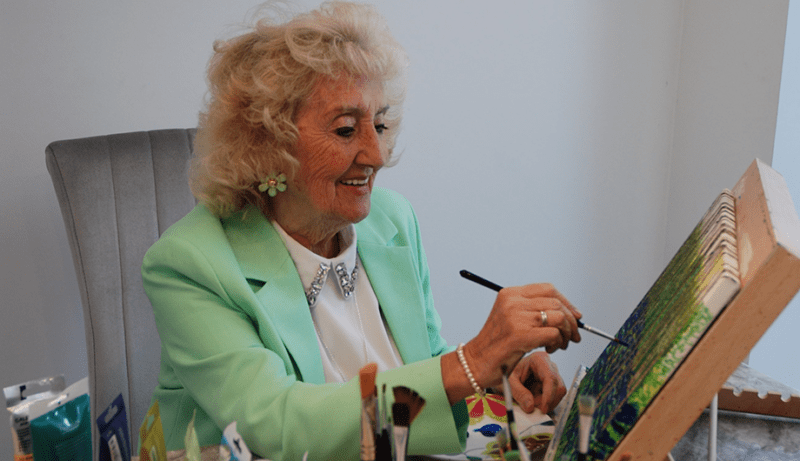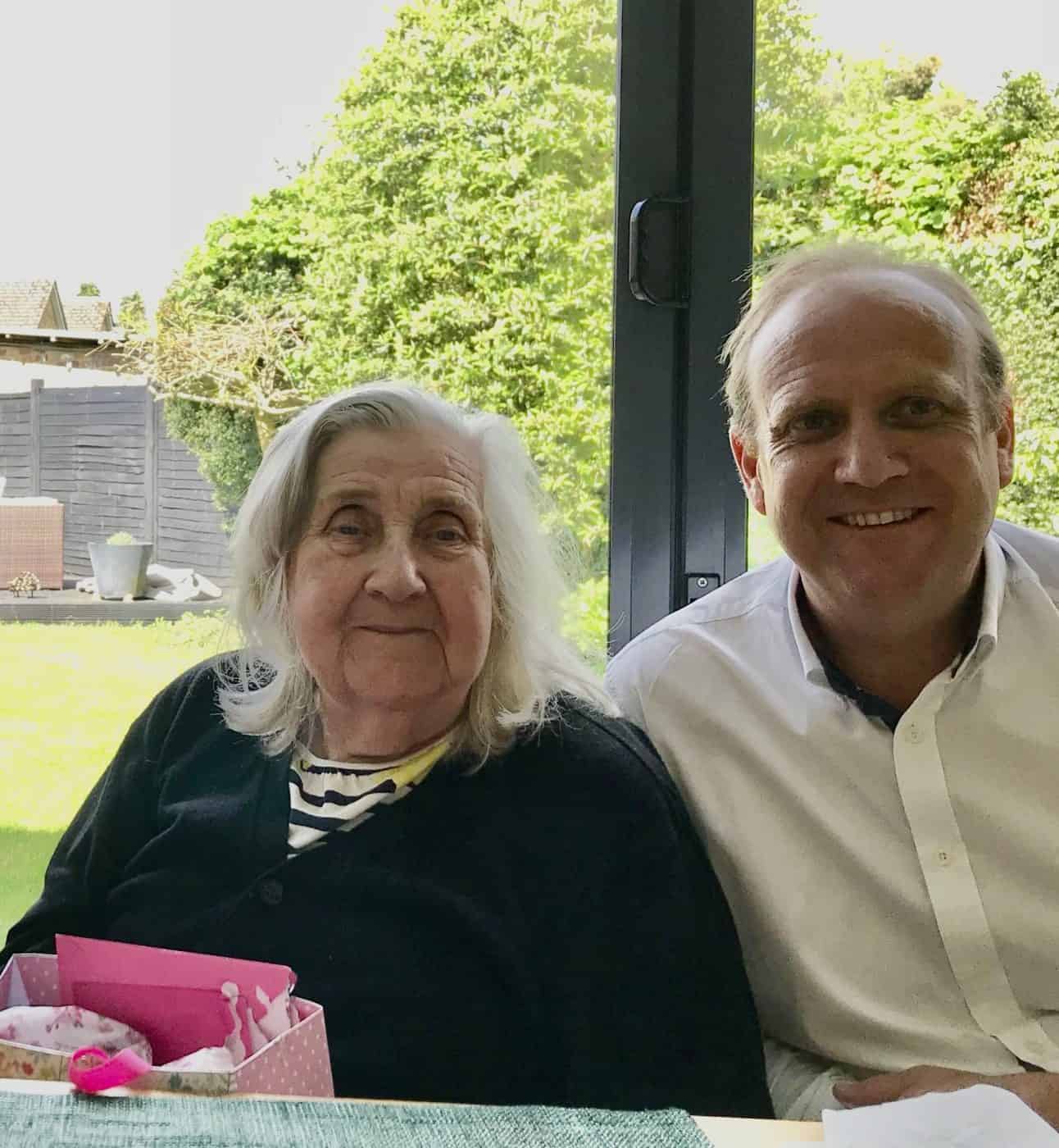
“The lack of recognition of unpaid carers is frustrating”
Will shares how his mum's diagnosis impacted the family and highlights the importance of advocating for young carers.
When should you be tested for memory problems? What does the test for dementia involve? Here is a Q&A featuring commonly asked questions about getting your memory tested.
Alzheimer’s disease is a type of dementia. There are hundreds of different types and causes of dementia, all categorised as progressive conditions that cause damage to the brain. Alzheimer’s is the most common type, accounting for more than 60% of diagnoses amongst people over 65 years old. Each type of dementia has different symptoms, but they are mostly identified by changes in concentration, memory, ability to do everyday things and sometimes personality and behaviour.
Everyone occasionally loses their keys, or goes into a room and forgets why they’re there. It is also perfectly natural to mix up people’s names and sometimes forget appointments that you’ve made. These memory lapses often – unfortunately – become more frequent as we get older, or when we are busy or distracted. In all probability, they do not mean that you have Alzheimer’s, or any other type of dementia.
A good rule of thumb is that if you are worrying about your memory, and you noticing your own lapses as they come and go, then it’s unlikely you have dementia.
If you are aware of your own memory lapses and they do not appear to be getting worse with time, it is very unlikely that you have dementia. The changes in the brain that happen when someone has dementia can make it difficult for that person to think clearly about the impact their own memory issues are having. So if you are worrying that your memory is getting worse, but no one else who knows you is, you probably do not need to go and see your doctor.
There are many factors that can affect your memory that are not related to dementia: a lack of sleep, stress, the menopause, physical ill health, vitamin deficiency or a change in medication can all affect your memory.
There are things you can try which will improve your overall health, which as a result, can help with improving your memory, as well as delaying the onset of dementia.
You should visit your GP if problems with your memory have started to have an impact on your life. This might mean that you are struggling to do your job or having difficulty with everyday living; or you are regularly forgetting where you are supposed to be, or are becoming increasingly muddled with things that used to be easy for you to do.
If you witness these symptoms in someone else you know, you could encourage them to visit their GP.
The person may be feeling frightened of getting a diagnosis and may think that they will lose their independence or have to go into care. In some cases, they may not understand that there are concerns about their memory or behaviour and deny they have a problem.
You could reassure the person that their symptoms might be due to another potentially treatable condition, such as a physical illness, depression or an infection, which might help them be more willing to visit the GP.
If the person simply refuses to go to the GP, you can contact the surgery to explain the situation. The GP may be able to provide a home visit to speak to the person about their symptoms.
As someone close to them, you could write a letter, telephone or email the person’s GP outlining your concerns. The GP may not be prepared to discuss confidential information with you, but they should welcome relevant information about the person’s current health and concerns.
Currently there are no physical tests for dementia available on the NHS, although one is being trialled, but scientists are continuously working on finding accurate ways to diagnose the condition, for example through blood tests and scans. There are, however, a range of tests that GPs will do, to rule out any other physical causes for the problems you are having. Other mental health conditions will also be ruled out such as depression, stress and anxiety. A GP may give you a questionnaire about how you feel to test for depression.
In addition, a GP might ask you a series of questions to establish if you are having problems with your concentration, memory, reasoning and spatial awareness. These might include asking what is the day, time or year; who the Prime Minister is; and asking you to perform a task, such as counting backwards from 100.
If you are taking a relative to the doctor about their memory, it is worth telling the GP any facts about your relative which might affect this test: for instance, someone who worked as an accountant or who has always been very good with numbers might continue to be good with numbers even with dementia. So counting backwards from 100 might not be a good indication of cognitive impairment in that person.
If the GP does suspect that you or your relative might have some sort of cognitive impairment, they will probably refer you to a Memory Assessment Team/ Clinic or a dementia specialist.
Some symptoms of dementia can also look like depression, such as sleepiness or insomnia, and a lack of interest in things. Because of the similar symptoms, it is possible for people with dementia to be misdiagnosed with depression.
A member of the Memory Assessment Team will speak with you and your family member to find out more about the issues you are experiencing. They will want to know when the symptoms started, how this affects everyday living, and what you have been doing to try to manage this. They will also conduct a range of tests to examine your thinking and memory skills.
If you have suspected dementia, your Memory Clinic or specialist might perform a more detailed examination of your brain. This might be a CT (computed tomography) or MRI (magnetic resonance imaging) scan. This involves lying down in a large tube which either uses; magnets and radio waves (MRI scan) or X-rays (CT scan) to take very detailed pictures of the inside of your brain. These pictures can then be used to assess if there is damage to your brain, and in what part, which can allow the specialist to make a diagnosis of dementia and tell you what type of dementia you have. This information is important because the type of dementia you have affects the treatment that is available to you, as well as helping to explain what issues you might develop in the future.
There is no cure for dementia. But people with Alzheimer’s might be prescribed a type of medication called cholinesterase inhibitors. There are three options: Donepezil, Rivastigmine or Galantamine. These medications work by preventing the breakdown of a chemical messenger (acetylcholine) which helps nerve cells in the brain communicate with each other.
Memantine can also be prescribed in the moderate to severe stage of Alzheimer’s disease alongside one of the above medications. This medication blocks the effects of excess glutamate in the brain and can help people with Alzheimer’s show some improvement with their memory, reasoning, language and attention.
If vascular dementia is caused by or related to heart disease, diabetes, or strokes, taking medication to control these conditions may prevent your dementia from getting worse.
Living healthily is the most important change you can make to help to reduce your risk of developing dementia or to slow down its progression, once diagnosed. There is evidence that what is good for the heart is also good for the brain. You can improve your brain function and overall health by eating a healthy balanced diet, giving up smoking, taking 150 minutes of moderate intensity activity per week e.g. brisk walking or cycling; and drinking alcohol in moderation. It is recommended that anyone over the age of 40 should attend an NHS Health Check every five years for early identification and treatment of physical health issues.
If you are experiencing difficulty getting a diagnosis, or if you have questions you can’t get answered, we’ll take the time to really understand the problem, and give you the expert support you need to tackle it. Please call our specialist dementia Admiral Nurses on our Dementia Helpline on 0800 888 6678 or email helpline@dementiauk.org.
You are entitled to request a different doctor or specialist, so you can request a second opinion. If you have any concerns about this, please contact the Admiral Nurse Dementia Helpline.
Our virtual clinics give you the chance to discuss any questions or concerns with a dementia specialist Admiral Nurse by phone or video call, at a time that suits you.

Will shares how his mum's diagnosis impacted the family and highlights the importance of advocating for young carers.

Since being diagnosed with Alzheimer’s disease in 2019, Sylvia has found a new purpose in expressing her feelings through painting.

When Steve’s mum, who had dementia, was hospitalised after a fall, Steve turned to Dementia UK’s Helpline for support.